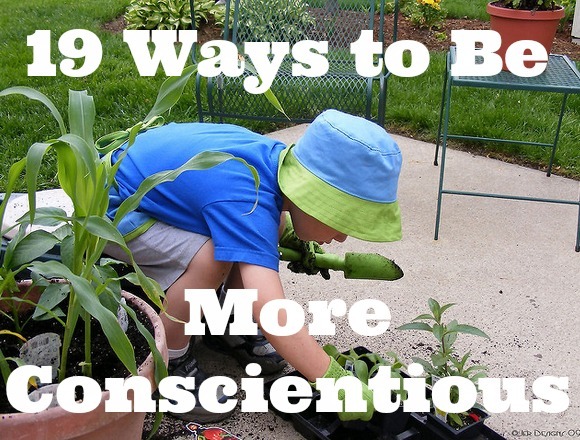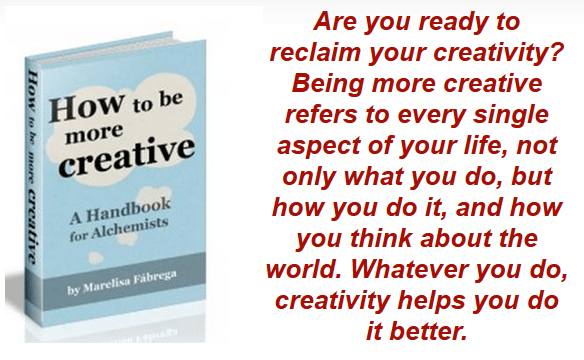
Conscientiousness is the personality trait most directly linked to success.
Conscientiousness is one of the five traits of the Five Factor Model of personality. This model suggests that a person’s personality can be described using five traits: openness, agreeableness, extroversion, neuroticism and conscientiousness. At the same time, studies show that the most important personality trait for predicting success is conscientiousness.
 The Merriam-Webster dictionary defines “conscientious” as “very careful about doing what you are supposed to do : concerned with doing something correctly”. Here are some of the many benefits of being conscientious:
The Merriam-Webster dictionary defines “conscientious” as “very careful about doing what you are supposed to do : concerned with doing something correctly”. Here are some of the many benefits of being conscientious:
- Conscientious people are happier at work.
- Conscientious people make more money.
- Conscientious people are healthier. As I wrote in my post, 17 Ways to Slow Down Aging and Live Longer, one of the ways to lead a longer life is by being conscientious.
- Conscientious people have happier and longer marriages.
- Conscientious people have more influence.
As an illustration, if Tom and Anne are conscientious, they’re likely to be at a healthy weight, be happy at work, have a good marriage, and have paid off their mortgage.
On the other hand, if Bob and Laura score low on conscientiousness, they’re likely to be overweight, dislike their jobs, be headed toward divorce, and have tons of debt.
The good news is that conscientiousness can be cultivated, even into old age. You become more conscientious by adopting the habits and attitudes of conscientious people. Below you’ll find 19 ways to be more conscientious.
1. Conscientious people pay their bills on time. People who are not conscientious are late paying their bills, so they end up paying late fees and their credit rating is negatively affected. Be more conscientious by setting up a bill paying schedule and sticking to it.
2. Conscientious people spend less than they make and set aside some money for savings and retirement each month. They plan their purchases and are less likely to buy stuff on whim – they think of the future consequences of what they buy.
People with low conscientiousness tend to spend their money almost as fast as they make it. To become more conscientious, create a budget and don’t exceed your spending limits.
3. Conscientious people live in clean, organized homes. People who are not conscientious live in wildly cluttered, untidy homes. This causes stress, it means they lose time trying to find lost items, and it generally creates a chaotic living environment.
To be more conscientious, declutter your living space. Then, create a cleaning schedule that works for you.
4. Conscientious people plan their day, while people who are not conscientious wing it. To be more conscientious, take five minutes before going to bed at night, or five minutes in the morning, and plan your day. Create a realistic daily schedule, and stick to it.
5. Conscientious people wear clothes that are clean and ironed, and that fit well. People who are not conscientious wear clothes that are stained and/or wrinkled, and which are usually too big or too small.
To be more conscientious, declutter your closet and make sure that everything that you put back in looks good on you and is ready to be worn. Then, start following wardrobe maintenance essentials.
6. Conscientious people purchase, prepare, and eat healthy meals. People who are not conscientious grab whatever they can find to eat, which means that they often end up eating meals which are high in calories and low on nutrients.
Become more conscientious by planning your meals weekly and organizing yourself so that you can cook yourself healthy meals.
7. Conscientious people keep their desks clean and tidy at work, with all of their papers filed away for easy access. People who are not conscientious have piles of paper sitting on their desks, they can never find a pen when they need one, and they usually have a few half-filled coffee mugs lying around.
Become more conscientious by decluttering your desk, setting up an effective filing system that allows you to quickly find the documents that you need, and by taking a few minutes to clear your desk before you leave work each evening.
8. Conscientious people are punctual. People who are not conscientious are chronically late, and are constantly missing appointments. To be more conscientious, work on your punctuality.
9. Conscientious people finish what they start. People who are not conscientious have poor follow through. If you want to be more conscientious, create the habit of sticking to a task, project, or goal, until you cross the finish line.
10. Conscientious people are dependable; when they say they’re going to do something, they do it. People who are not conscientious are constantly breaking promises and letting others down.
To become more conscientious, don’t commit to more than you can handle. In addition, when you do make a commitment to do something, uphold your commitment.
11. Conscientious people have grit; they persevere until they get the job done. People who score low on conscientiousness tend to give up when the going gets tough. To become more conscientious, work on becoming more perseverant.
12. Conscientious people are polite; they’re respectful of others. People who are not conscientious tend to be oblivious to social propriety.
If you want to be more conscientious, you may want to brush up on your etiquette, review George Washington’s Rules of Civility and Descent Behavior, or just pay more attention to how your behavior affects others.
13. Conscientious people eat the frog –they work on the most difficult task of the day first, in order to get it over with. People who are not conscientious avoid difficult tasks. If you want to become more conscientious, tackle the most difficult task of the day before 10 am.
14. Conscientious people meet deadlines. People who are not conscientious procrastinate on tasks until the last minute, which means that they often miss deadlines and have to ask for extensions.
If you want to be more conscientious, stop procrastinating and start handing assignments in on time and meeting project deadlines.
15. Conscientious people go to bed 7.5 hours before they have to wake up so that they can get enough sleep and get up when the alarm goes off. This means that they’ll be able to get to work on time, take their kids to school before the bell rings, or be on time for their first morning activity.
People who are not conscientious stay up later then they should and then oversleep the next morning. This means that they get a late start, which sets a bad tone for the rest of the day. If you want to be more conscientious, start following a sleep schedule.
16. Conscientious people get some form of exercise on a regular basis. People who are not conscientious lack the self-discipline to follow a fitness regime. If you want to be more conscientious, take up some sort of physical activity which you’ll engage in routinely.
17. Conscientious people have good impulse control. That is, they have high self-regulation. People who are not conscientious usually have low self-regulation. To become more conscientious, work on becoming better at regulating yourself.
18. Conscientious people are goal oriented. People who are not conscientious are usually not goal setters. If you want to be more conscientious, sit down and set some goals that are important to you, and create a plan for achieving those goals.
19. Conscientious people have an internal locus of control. That is, they take responsibility for themselves and what they do. People with low levels of conscientiousness have an external locus of control. When something goes wrong they blame others, or the circumstances, and refuse to take responsibility.
In order to make yourself more conscientious, begin cultivating the belief that you’re in control of your life, and whether you fail or succeed depends on you.
Conclusion
Keep in mind that there’s a scale of conscientiousness. All you need to do is work on moving up the scale until you reach the point at which you’re getting the results that you want from life.
Live your best life by being more conscientious. Get started by doing the 19 things listed above.





Related Posts:
- 16 Personal Development Goals That Will Make You Happier and Sexier
- 16 Ways to Create a Life That Rocks
- 12 Things to Stop Doing If You Want to Be Happy
- 32 Timeless Success Secrets From Napoleon Hill
Did you enjoy this article? Subscribe to “Daring to Live Fully” by RSS or by email, and get free updates.




 Marelisa Fabrega is a lawyer and entrepreneur. She holds a Bachelor of Science in Business Administration from Georgetown University in Washington, D.C., as well as a Juris Doctor from the Georgetown University Law Center. You can learn more about her
Marelisa Fabrega is a lawyer and entrepreneur. She holds a Bachelor of Science in Business Administration from Georgetown University in Washington, D.C., as well as a Juris Doctor from the Georgetown University Law Center. You can learn more about her 





